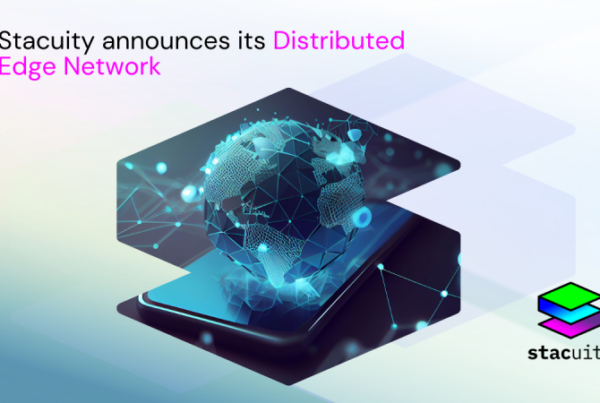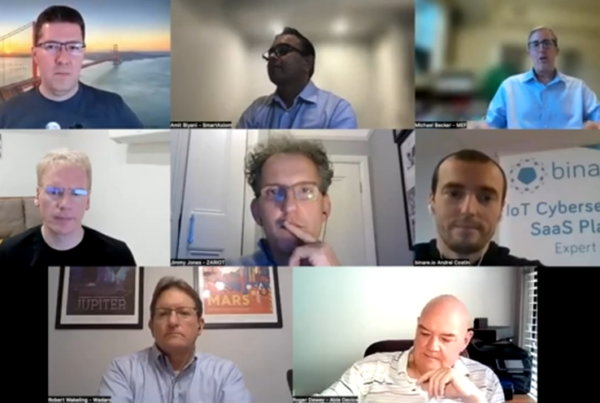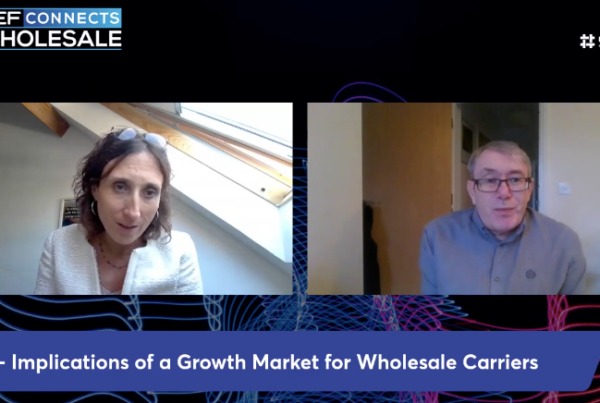Angel Dobardziev, Director at independent research consultancy WhiteBridge Insight, shares thoughts on how to succeed as an IoT Solutions provider, and how to avoid the common pitfalls facing enterprises moving into the IoT space.
The enterprise Internet-of-Things (IoT) market is one of the fastest growing and soon, one of the largest technology opportunities, variously forecast to reach global revenues of $1 trillion a year by 2022-2025 by different analyst firms. It includes separate markets for IoT connectivity, hardware, software platforms, as well as vast IoT solution integration and service opportunities. But it is also a very complex ecosystem for enterprise decision makers (DMs) to navigate.

On the face of it, connecting industrial ‘things’ such as buildings, machinery, meters and tools with sensors and actuators so the business can monitor and manage them remotely, better, faster and cheaper is a simple enough concept. The complexity arises from the next level considerations. There is a need to secure the ‘things’; decide on various approaches for managing, processing and acting on the mountains of IoT data which may require AI; there is a challenge of moving from IoT pilots to scaled up IoT deployments; and in particular, there is a need to demonstrate a real link between IoT investments and the strategic business outcomes sought out of IoT initiatives the first place. The last one is particularly important for business DMs such as COOs, CFOs, CMOs and CDOs (D for Digital).
Business stakeholders lead IoT decision-making
Our recent research and client engagements suggest that business stakeholders such as COOs are now leading DMs in the majority IoT deployments – ahead of tech stakeholders CTOs and CIOs, who often play supporting roles. Business DMs have very different perspectives, and ways of engaging and buying from tech providers when compared to than their tech peers. At the core of their differences is the fact that business DMs mostly care about how IoT can help them make money, save money, compete more effectively or address business risks – rather than get excited about the technical merits of edge computing or IoT security detail that excite their technology peers. They are also reluctant to deal with hordes of IoT suppliers, and often prefer to pick a partner than can ‘prime’, or lead their IoT deployments.
At the core of their differences is the fact that business DMs mostly care about how IoT can help them make money, save money, compete more effectively or address business risks – rather than get excited about the technical merits of edge computing or IoT security “
We think the leading role of business DMs in the IoT market is not only here to stay, but will expand going forward. This is one of the key factors causing notable value shifts in the IoT ecosystem. For example, some segments, notably basic IoT hardware (e.g. sensors and actuators) and IoT connectivity are becoming increasingly commoditised where suppliers compete mostly on price; whilst others, notably IoT software platforms and especially solution integration services, less so where the competition is mostly on value. Many players – telcos included – are as a result are re-evaluating their role in the IoT value chain and how they can position as IoT solution integrators so they avoid the commodity trap and capture more of the value in the less commoditised, and faster growing, platform, solution and service segments.
A number of leading telcos have built or acquired considerable IT service capabilities over the years that would enable them to play the IoT integrator role, at the very least in select geographies and industries. Their big hurdle is that many remain organised to sell to technology stakeholders such as CIOs and CTOs – rather than business peers such as CMOs or CFOs. In a world where business DMs make the key IoT decisions with CIOs playing a supporting role at best, this is a challenge, if not an outright show-stopper.
The need for a new style commercial IoT organisation
What could telcos and other aspiring IoT solution providers do in this context? The IoT platform and service capabilities, tools, and assets are necessary, but insufficient – if your sales director struggles to get a conversation with the business DMs, or when they do, they come across as irrelevant. Business DMs expect to see a deep understanding of their industry and business and tailored insights on how IoT can help them achieve their business, not tech, outcomes. Leading IT system integrators know – and do – this very well.
To succeed, telcos in particular will require nothing short of a transformation in their commercial B2B operation in a way that can enable to effectively engage, and ultimately sell IoT solutions, to business DMs. This new sales and marketing operation needs to bring tailored industry- and business-specific insights that can can convince the COO that their IoT solution it will make his operations more efficient, save money to a CFO, make money to a CMO, or be an integral part of a digital transformation initiative to a CDO. These are the conversations that differentiate providers as they focus on business value, rather than technology features and benefits.
Building such a commercial organisation requires a new approach. It means building a deep repository of insight that can be customised at industry, organisation, role and even individual level. It requires an IoT sales function packed with senior, insight-led, sales-maker individuals – rather than order-takers and RFP responders. It also requires a different, needs-based client segmentation framework, as well as a marketing function that acts like an industrialised insight machine.
This commercial transformation will in most cases be a multi-year strategic journey that is neither easy nor simple. It will require effort and investment. But doing nothing, and still expecting your commercial team to sell IoT solutions and grow your share in this market is at best unrealistic, and at worst, unwise.
Want to be featured on the MEF Minute?
The MEF Minute is an award winning blog that provides a cross-ecosystem and international perspectives on all things mobile. With contributions from MEF’s members and other industry experts it is a dedicated global news resource and thought leadership platform.
We welcome contributions from members and non-members across a range of formats including opinion pieces, industry views, stats, videos and infographics. MEF Minute offers a 360 look at any given topic impacting the mobile ecosystem whether that be from a MNO, enterprise, developer or provider perspective.






